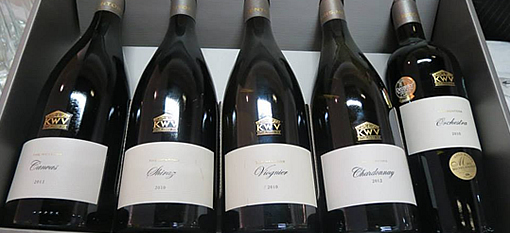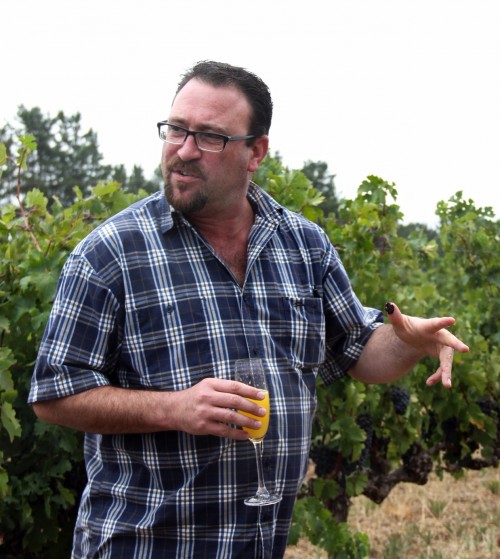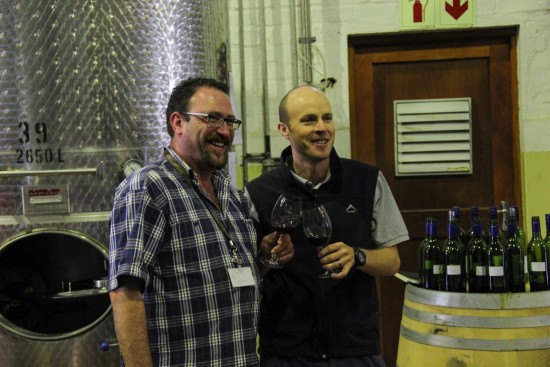KWV, one of South Africa’s main wine and spirit producers, is also home to what is arguably the country’s most awarded single wine range, KWV The Mentors.
In contradiction to the perceived size of KWV, KWV The Mentors is made in boutique quantities in a separate ‘winged cellar’ at the facility, where Chief Winemaker Johann Fourie and his young team are allowed to experiment with their allotment from the vines in order to extract wines that are of a distinct calibre. It is a fascinating journey: one which starts with rigorous selection criteria at the hands of Head Viticulturist, Marco Ventrella and his team in the vines, and is carried on throughout the grapes’ journey from vine to final bottling. The final result is small quantities (only 5000 ℓ in some instances) of eminently drinkable, elegant and balanced wines that reflect the diversity of terroir and climate in the Western Cape.
From vine
It is a well-known saying that ‘great wine is made in the vineyard’, as it is only when great care is taken by viticulturists – those who are tasked with the responsibility of taking care of the vines – that the winemaker will be provided with healthy grapes to make into memorable wines.
KWV in Paarl has dedicated its flagship range, KWV The Mentors, to pay homage to this intricate relationship between winemaker and vine. “At KWV we see nature as our greatest mentor, which is why we honour her with wines made from the best grapes of a particular harvest,” says Ventrella. “In order to source the finest quality grapes, great care is taken in the vineyard to ensure the best possible growing and ripening conditions for our vines.”
Ventrella, who sources grapes from various vineyards in select pockets of the winelands, has eleven years’ experience as a viticulturist, and he is well accustomed to the whims and moods of nature: “the smallest variable has the ability to change the whole outcome of a harvest, you have to be very in tune with the vines and responsive to nature,” he says.
It is this intimate knowledge of the vines which provides Ventrella and the KWV winemaking team with the premium quality grapes they need to produce the delicate, pure and delicious KWV The Mentors wines – which can all be tasted at the KWV Emporium in Paarl. “Producing a wine of fine quality is the highest form of respect and praise you can give any vineyard,” says Ventrella.
To bottle
The focus on quality is such that wines in the KWV The Mentors range only contain varieties that met the high level of standards set by the KWV The Mentors’ winemaking team. This means that every new vintage release of KWV The Mentors wines will reflect different varieties, deemed the best possible expression of varietal character and terroir for that particular vintage, and also the best possible quality.
“KWV The Mentors cellar is where my winemaking team and I are allowed to play and experiment with the finest quality grapes, from different vineyards, using different methods and techniques in in order to make wines that are distinctly classy,” says Fourie. We focus our energies on achieving top quality only, in this manner the flagship range not only dictates quality in the rest of the KWV cellar, but it also allows for the ‘innovation and experimentation’ done in The Mentors cellar to trickle down into other wine ranges.”
This approach has resulted in KWV amassing an impressive collection of trophies in 2015: apart from Chief Winemaker Johann Fourie being named Diner’s Club Winemaker of the Year for the KWV The Mentors Pinotage 2013, KWV The Mentors also collected four trophies, eleven double golds, 23 golds, 39 silvers and 38 bronzes in various local and international wine competitions.
Fourie revealed that KWV The Mentors will be even more boutique-driven in 2016. This follows a very dry growing season across the winelands, which resulted in lower than normal yields, “we’ve been lucky to have even ripening in our vineyards which makes for less intervention in the vineyard, fewer pickings and grape sorting and overall better quality, but generally there were less grapes and fewer bunches going around. Across the board, this is going to be a small vintage, therefore I will advise consumers to stock up sooner than later to avoid disappointment!”






